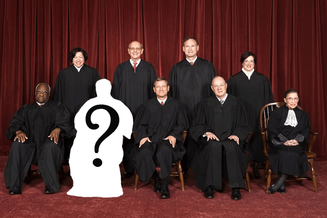weekly column
|
Each week, find a commentary on something connected to verses of Torah or another source of wisdom
|
|
Each week, find a commentary on something connected to verses of Torah or another source of wisdom
|
 The infrastructure of our government and our civic life today bears little resemblance to what the Bible describes. The tribal chieftains whose domains made up the confederation of Israelites eventually were under the rule of various kings – at first serially and then simultaneously. The economic system presumed by the Bible was a sort of regulated free market, if such a thing is possible, and both debt and real estate sales were canceled on a cyclical basis to prevent the concentration of wealth or the emergence of a permanent underclass. Indentured servitude was common for fellow Israelites, but out and out slavery was permitted for outsiders. And let’s not start on matters of personal status, especially for women. But there is one civic instruction in the Torah that is both unambiguous and as contemporary as the daily news. Judges and magistrates must be appointed “and they shall render just decisions for the people” (Deut. 16:18). In three short verses, these requirements are made crystal clear: appoint judges who are impartial and will not accept bribes, and pursue justice with just means. Subsequent sections of Deuteronomy amplify those requirements and expand on legislation in other parts of the Torah. Over thousands of years, sages and scholars and students of the Bible have debated what it means to bear false witness or to be culpable for a capital crime or to claim a found object. But there has never been a challenge to the mandate to appoint judges of integrity as a condition of living in the Land. It is usual for social justice types like me to focus on the third of those verses, specifically, “Justice, justice shall you pursue.” It is such a trope among activists that Rabbi (now Ambassador) David Saperstein would often caution his students (myself included) not to take the easy way out when examining policy issues by quoting this verse and then proclaiming, “Therefore, we must do such and such.” But in this moment, it is the first mandate to which we must pay closer attention. Judges and magistrates MUST be appointed. It is the obligation of the community leadership to ensure that people of integrity are installed as officials of the judicial system. The roster of cases to be adjudicated is pretty comprehensive, as the ever-expanding body of law in any society is. But if we are to make a life in the Land – or in any land, under any form of government – then justice must be served by just justices. There is a reason that the founders of this country insisted that the federal judiciary not be established by popular vote. Every time there is an election, it seems some other kind of impropriety or bad behavior is committed by someone connected with the campaign. Candidates are chosen on the basis of the policies they propose and the methods with which they intend to implement them – I will lower your taxes, I will pave your roads, I will protect your rights, I will build a wall. Hey, even that short list has provoked a visceral reaction inside of you that gives you more or less of a reason to trust anyone who wants your vote. But a judge must be impartial. A judge applies the law given her or his best understanding of what the law demands. Certainly, there are judges who take a particular approach to “what the law demands.” There are those who take things literally (an eye for an eye means an actual eye), who try to determine intention (an eye for an eye means the value of an eye), who think the law has deterrent tendencies (an eye for an eye means making sure no one puts out another eye) and a hundred other kinds of approaches. But in the end, a judge must favor neither rich nor poor, wise nor foolish, influential nor powerless, friend nor stranger. Any attempt to politicize the judge, that is, to predetermine the outcome of future deliberations, is an abrogation of responsibility on the part of those who do the judicial appointing. As I have written before, I had the genuine privilege to meet Justice Antonin Scalia a few times. He was a brilliant man, devout in his faith and possessed of a particular approach to “what the law demands.” I didn’t much like that approach, but when he was nominated by President Reagan in 1986, he was approved almost unanimously by the Senate. When he died in early 2016, it became the responsibility of the President and the Senate to replace him on the Supreme Court. I am no different than anyone else in my preferences for the kind of approach to the law I would like to see on the bench. It is pretty clear that the judge nominated by the President – Merrick Garland – has a different approach to the law than Justice Scalia, but no less integrity. It was the President’s responsibility to put forward a nominee. It is the Senate’s responsibility to deliberate and confirm or reject the nomination. To refuse to hold the hearing is an abrogation of the responsibility to fulfill that unambiguous instruction that judges and magistrates MUST be appointed. It disables the full functioning of the highest court in the land. A Justice delayed is justice denied.
0 Comments
Leave a Reply. |
Archives
October 2023
Categories |